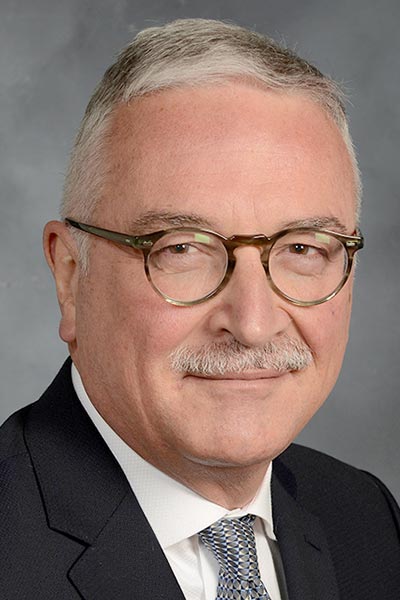Session will explore latest research addressing inflammatory breast cancer
//
Estimated Read Time:
Inflammatory breast cancer (IBC) is characterized by the rapid onset of diffuse breast and skin changes resulting in locally advanced disease with extensive locoregional nodal involvement. At initial presentation, the disease is already metastatic to distant sites in up to one-third of cases, reducing the possibility of definitive cure.
During the session Inflammatory Breast Cancer, a panel of experts will discuss new and emerging research addressing the unique challenges clinicians face in diagnosing and treating IBC. The session will be held on Sunday, April 7, from 1 – 2:30 p.m. PT, in Room 16 on the mezzanine level of the San Diego Convention Center

“IBC remains a relatively unexplored, aggressive form of breast cancer. Its peculiar clinical presentation and evolution with predominantly lymphatic spreading challenges our understanding about breast cancer and reduces our success in treatment,” said Massimo Cristofanilli, MD, chief of breast medical oncology and scientific director of the Englander Institute of Precision Medicine at Weill Cornell Medicine and chair of the session.
Histological characteristics of IBC include tumor emboli within the dermal lymphatics associated with persistent expression of E-cadherin and markers of mesenchymal differentiation responsible for treatment resistance and metastatic dissemination.
Molecular studies with next-generation sequencing have identified predominant genomic alterations in cell-cycle regulation and receptor tyrosine kinase pathways in IBC irrespective of breast cancer subtype. Additionally, recent findings from preclinical studies suggest a critical role of the tumor microenvironment, DNA methylation, and post-translational modifications with potential new therapeutic opportunities.
“During this session, we will review the most recent research findings with regards to inflammatory breast cancer, with particular focus on the role of clinical diagnosis and how to use advanced imaging studies,” Cristofanilli said. “We will also discuss the integration of molecular testing from tissue and blood to investigate the peculiar biology of the disease, as well as the role of the tumor microenvironment and the identification of novel molecular targets.”
Joining Cristofanilli for the session will be Marwa Manai, PhD, Institut Pasteur de Tunis, Belvedere, Tunisia, and Nathan M. Merrill, PhD, University of Michigan.




